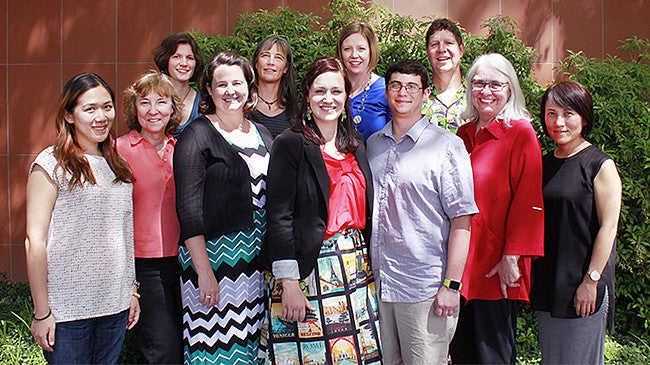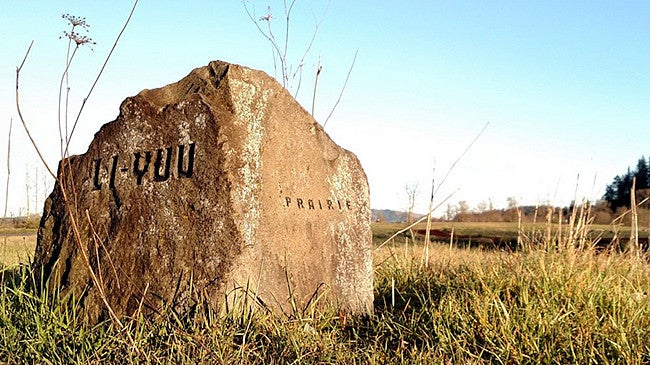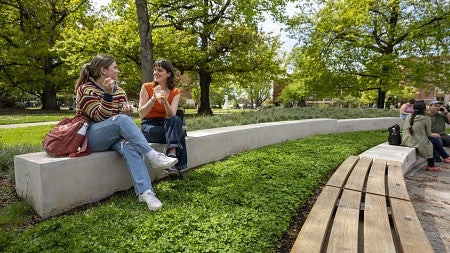The UO Linguistics Department faculty research addresses three broad themes: linguistic diversity & society; language learning & technology; language processing & human health. Our vision is to embrace individual and community language behavior and change as objects of linguistic study, with attention to how this study can benefit society.
Our Research Labs
Our faculty includes fieldworkers, psycholinguists, and corpus linguists. Faculty research ranges from documenting understudied languages in far-flung reaches of the world to working with typically developing, English-speaking children who live right here in Eugene. Students who are interested in getting involved in research are encouraged to talk with faculty members who inspire them.
- Speech & Language Lab, Directed by Melissa Redford
- Usage-Based Linguistics Lab, Directed by Vsevolod Kapatsinski
- Language Revitalization Lab, Directed by Gabriela Pérez Báez
- Learner Corpus Research and Applied Data Science Lab, Directed by Kris Kyle
- Raciolinguistic Emotion Perception Psycholinguistics Lab (REPPS), Directed by Rachel Weissler
The Department of Linguistics is also affiliated with two major research centers.
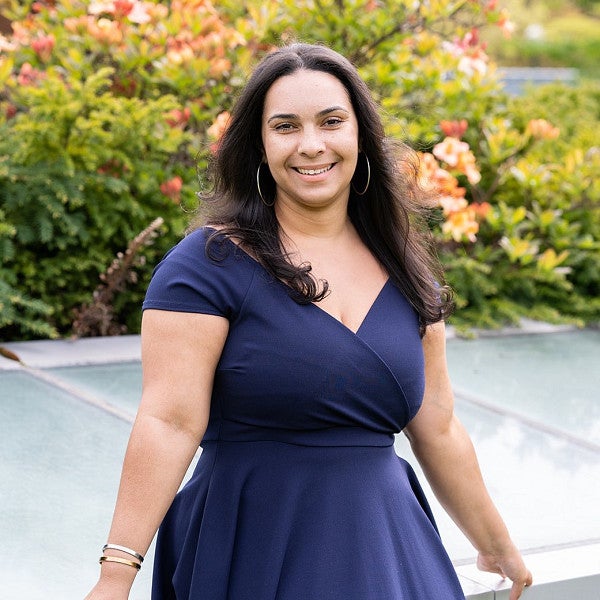
“I am a sociolinguist and African American English scholar. I have done extensive research with experimental methods looking at how different intersecting identities, communities, and environments influence people’s linguistic perceptions of one another. I've published in journals such as the Annual Review of Linguistics, Journal of Applied Psycholinguistics, Annual Review of Applied Linguistics, and the Dædalus Journal of the American Academy of Arts & Sciences. I am also a Black Studies affiliate faculty member, a faculty director of the Umoja Black Scholars Program, and a director of the Black Strategies Group for faculty and staff.”
-Rachel Weissler, Assistant Professor of Linguistics
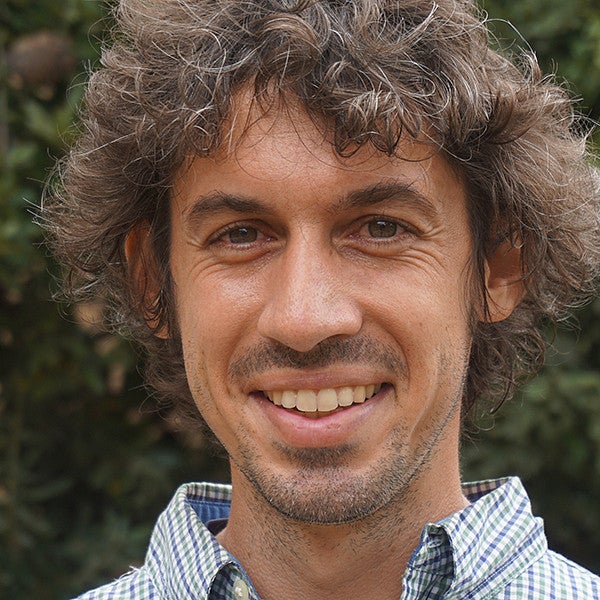
“My research focuses on endangered languages in Papua New Guinea, where I’ve been conducting fieldwork since 2006. I’m interested in language change, both from a theoretical perspective and from a methodological one. I work primarily with languages of the Madang branch of Trans New Guinea, and I’m currently involved in a long-term documentation project of the Sgi Bara (or Jilim) language.”
-Don Daniels, Associate Professor of Linguistics
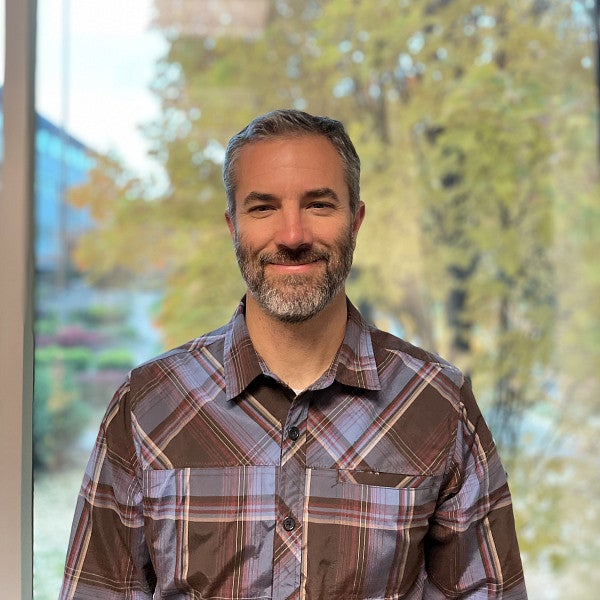
“The Linguistics department is an excellent place to learn how to apply data science techniques to theories of language use, variation, and development. In my lab, we use cutting-edge NLP techniques to investigate how language use varies across language use domains (e.g., genres) and how the words and phrases individuals use affect our perceptions of language proficiency. My students have gotten jobs both in industry (e.g., Amazon) and academia."
-Kris Kyle, Associate Professor of Linguistics
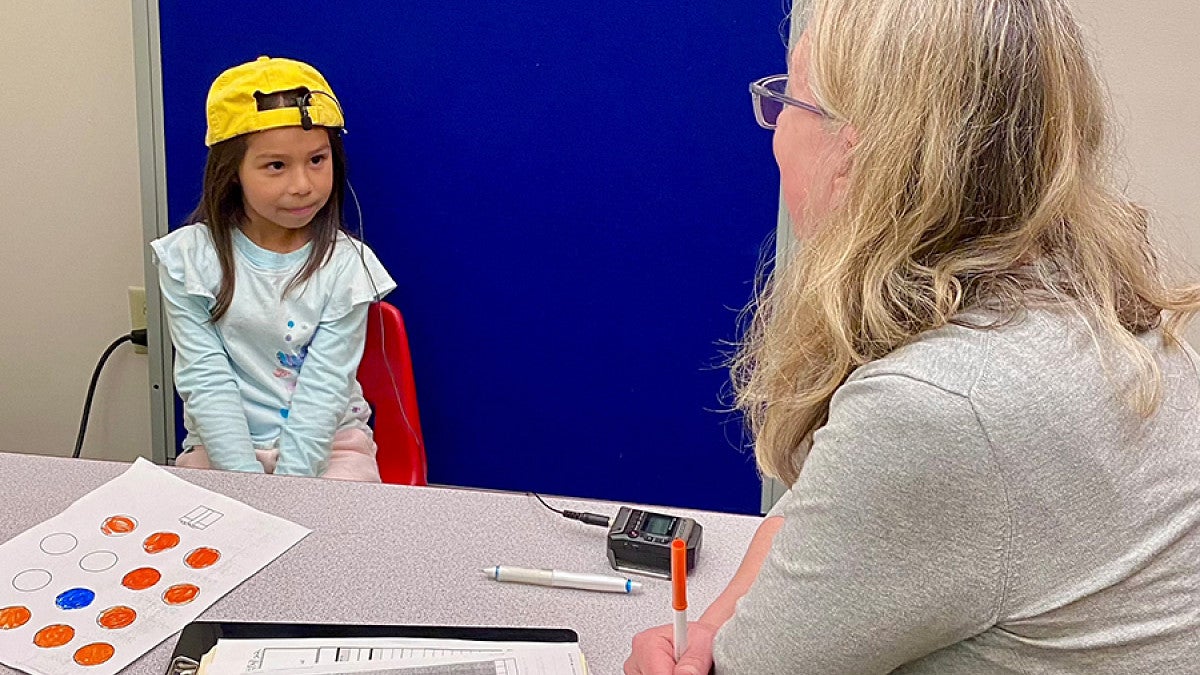
Research Across Disciplines
Linguistics faculty members work on languages from virtually all over the world. We have a wide variety of interests:
- Descriptive/typological work on lesser-known languages and language revitalization
- Historical work in syntax, semantics, and phonology
- Work on the intersection of language, society, and culture
Interdisciplinary Opportunities
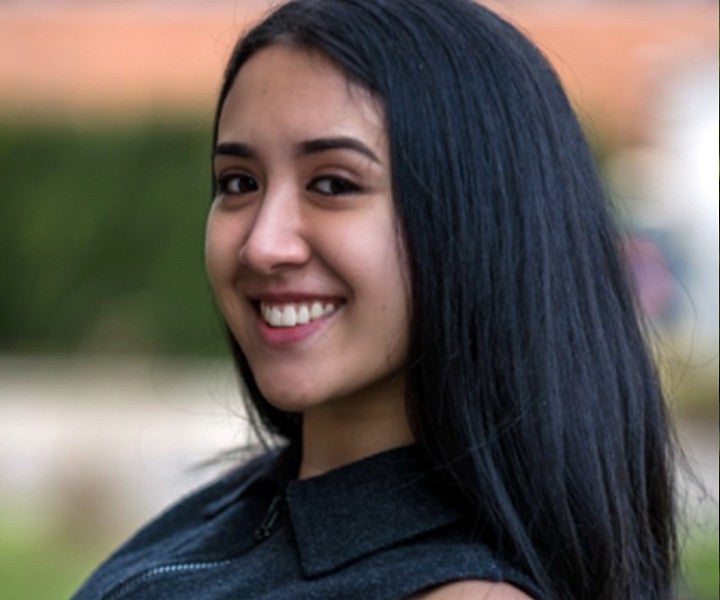
Linguistics Prepared Me for the Next Steps in My Career
“Even though I am not working directly in linguistics at the moment, the UO Department of Linguistics could not have prepared me better for working in a research environment. The Speech Perception and Production Lab provided me with an avenue and the resources to develop my honors thesis; it was also one of my main places for academic (and emotional) support when I was an undergraduate student. Working at this lab showed me what it looks like to do good science and encouraged me to not be intimidated by tackling concepts or skills that I had little experience with. Now, as a research assistant at the Saxe Lab (a social cognitive neuroscience lab at MIT) in a field that is fairly new to me, I am not too intimidated by taking on new challenges – rather, I'm excited about learning new things!”
–Sabrina Piccolo, BA in Linguistics, ‘21


